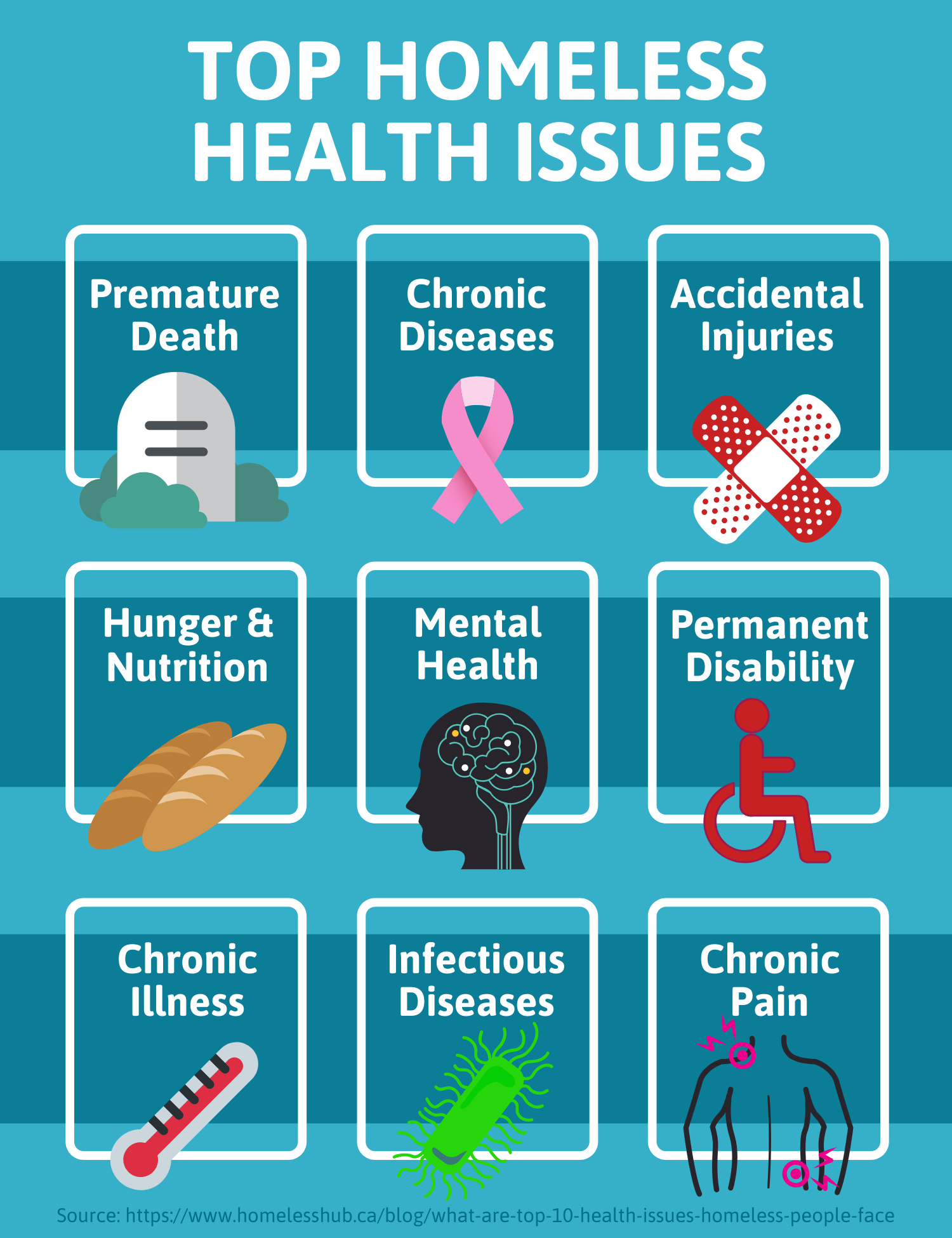This is a special feature that was produced for National Health Center Week (NHCW). NHCW brings awareness to the various challenges health centers and their patients face and recognizes that patient health starts at the heart of their communities.
High rates of homelessness across the nation continue to be a social issue that impacts the health care system. In January of 2023, it was estimated that in a single night more than 650,000 people were experiencing homelessness in the U.S., and numbers are only expected to rise.¹ Oftentimes, homeless individuals in need of care are not sick enough to be in a hospital, but are too sick to be on the streets or at a shelter. With limited resources available, they often do not have a primary care provider. This provides a challenge to patients and physicians as of how to overcome the barriers that impede the homeless from receiving basic care.²
Health centers are often the solution. They provide care to anyone in need, including low-income individuals. In 2020, access to care became an even bigger issue that came to be supported by telehealth. However, there are still many homeless people struggling to access health care across the Nation as they face various social determinants of health that pose as main barriers.
Homelessness is associated with many health issues, including chronic illnesses and a shorter life expectancy.⁴
Consider these two studies:
-A study observing the New York City shelter system found that 6 percent of newly homeless people had diabetes, 17 percent had hypertension, 17 percent had asthma, 35 percent had major depression, and 53 percent had a Substance Use Disorder (SUD).³
-A study in Boston of 25-44 year olds found that men who were homeless faced a mortality rate 9 times higher than the general population of Massachusetts. For women, it was 10 times higher. For 45 to 65-year-olds overall, the mortality rate was 5 times higher for people experiencing homelessness.³
Long term homelessness ultimately lowers an individual’s health due to lack of care and shelter from outside elements. Many injuries such as a blister or sprain can become increasingly worse if left unattended, resulting in health risks that could have been avoided.

Fast Facts: Homelessness Disparities¹
- Males account for around 61 percent of people experiencing homelessness
- ~40 percent of people experiencing homelessness are unsheltered, or sleeping in places not suitable for human habitation
- Pacific Islanders and Native Americans are most likely to be homeless in comparison to other racial/ethnic groups in the U.S.
- Veterans account for 13 percent of people who are homeless⁷
- People that are homeless have health conditions that mirror people 15-20 years older than them.
- Around 127,000 adults who are homeless are over the age of 55
- In 2022, 7.2 million households in the US were severely cost burdened, meaning they spent more than 50 percent of their income on housing, putting them at risk of homelessness.
Top 10 states with the highest number of homeless individuals:
- California
- New York
- Florida
- Washington
- Texas
- Oregon
- Massachusetts
- Colorado
- Arizona
- Pennsylvania
The social determinants of homelessness and health inequities are often intertwined. Certintell’s goal is to fix this problem and expand health care to the homeless.
CARE GAP: Each year, America’s Community Health Centers serve 1.3 million people who experience homelessness.⁴ People who are homeless are at greater risk of disease and behavioral health conditions that make them vulnerable to poor health, disability and premature death.⁴ The continuation of the expansion of health care to the homeless is critical to ensure the safety and health of all community members.
Many health centers are adopting telehealth as a way to narrow this care gap. In recent years, the use of telehealth has become increasingly important as more health center clinic sites close, shutting off access to thousands of people experiencing homelessness.⁵ Though, in recent years, healthcare for homeless individuals has been increasingly provided through telehealth.
CERTINTELL SOLUTION: Certintell’s goal is to contribute to the expansion of health care to the homeless by equipping safety-net providers with technology to serve the homeless through telehealth solutions. Our software, with a focus on care management services, allows those who do not have health care access to be seen by a provider from any location with an internet connection, through a mobile device.
GET ACTIVE
➠ Visit ‘National Health Care for the Homeless Council’s page for more ways to advocate for this focus day.
This article was previously featured as a part of Certintell’s 2019 National Health Center Week efforts to support the awareness, advocacy and celebration of Community Health Centers during the annual week-long event. The original content has been expanded to provide more value to the reader.
SOURCES:
¹ “State of Homelessness: 2024 Edition.” National Alliance to End Homelessness, 2024, https://endhomelessness.org/homelessness-in-america/homelessness-statistics/state-of-homelessness/
² “Medical Respite Care | NHCHC.” 2019, nhchc.org/clinical-practice/medical-respite-care/?gclid=EAIaIQobChMIsoSdipiS5QIVdBh9Ch23aAWNEAAYASAAEgKHYvD_BwE.
³ Office of Disease Prevention and Health Promotion. “Discrimination | Healthy People 2020.” HealthyPeople.Gov, www.healthypeople.gov/2020/topics-objectives/topic/social-determinants-health/interventions-resources/discrimination. Accessed 27 July 2020.
⁴ “Monday, 8/5 – Health Care for the Homeless Day.” National Health Center Week, 9 May. 2017, healthcenterweek.org/healthcare-for-the-homeless.
⁵ “COVID-19 Data Dashboard: Health Care for the Homeless Comparative Data | National Health Care for the Homeless Council.” National Health Care for the Homeless Council, 10 July 2020, nhchc.org/covid-dashboard.
⁶ “What are the top 10 health issues homeless people face? | The Homeless Hub.” 6 Feb. 2015, www.homelesshub.ca/blog/what-are-top-10-health-issues-homeless-people-face.
⁷ Moduet. (2021, February 4). “Veteran homelessness.” National Coalition for Homeless Veterans. https://nchv.org/veteran-homelessness/



